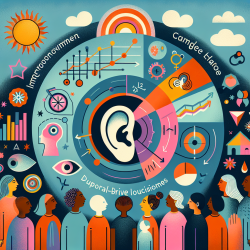Understanding Institutional Conscientious Objection in Healthcare
In the realm of healthcare, the concept of conscientious objection has traditionally been associated with individual practitioners who refuse to participate in certain medical procedures due to moral or ethical beliefs. However, the debate has expanded to consider whether publicly funded healthcare institutions should also have the right to conscientiously object to providing certain services, such as abortions or euthanasia. This discussion is particularly pertinent as religiously affiliated healthcare providers grow in number and influence.
The Metaphysical Model of Institutional Conscience
The research paper "Three Arguments Against Institutional Conscientious Objection, and Why They Are (Metaphysically) Unconvincing" by Xavier Symons and Reginald Mary Chua presents a metaphysical model of institutional conscience. This model challenges the notion that institutions cannot possess a conscience and therefore should not be afforded conscience protections. The authors argue that institutions, like individuals, can be seen as group agents with their own set of beliefs and values, which can be protected under the same ethical considerations that apply to individuals.
Three Common Arguments Against Institutional Conscientious Objection
- Institutions Lack Conscience: Critics argue that since institutions are not individuals, they do not possess a conscience and therefore do not require conscience protections. However, the metaphysical model suggests that institutions can indeed have a conscience, as they are capable of holding collective beliefs and values.
- Public Funding Obligations: Another argument is that publicly funded institutions should provide all legal and safe medical services. The authors counter this by highlighting that religiously affiliated institutions are often transparent about the services they do not provide and are funded with the understanding of their ethical stances.
- Access to Essential Services: There is concern that institutional conscientious objection could limit access to essential services, particularly in areas where religiously affiliated hospitals are the primary healthcare providers. The paper suggests that the state should ensure access to these services without forcing institutions to compromise their values.
Encouraging Further Research and Reflection
The paper encourages healthcare practitioners and policymakers to engage in deeper reflection on the metaphysics of institutions. Understanding the nature of institutional agency and conscience can lead to more nuanced and effective policies that respect both the rights of institutions and the needs of patients.
For practitioners looking to improve their skills and understanding of this complex issue, delving into the metaphysical underpinnings of institutional conscientious objection can provide valuable insights. It is crucial to consider the broader implications of these debates on healthcare ethics and policy.
To read the original research paper, please follow this link: Three Arguments Against Institutional Conscientious Objection, and Why They Are (Metaphysically) Unconvincing.










